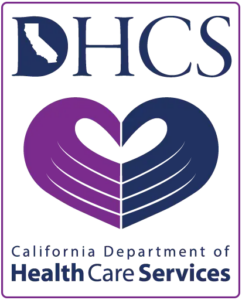
What’s the Difference Between Detox and Rehab?
When beginning the journey to sobriety, it’s common to hear the terms “detox” and “rehab” used interchangeably. While they are both vital components of the addiction recovery process, they serve different purposes and play distinct roles in helping individuals achieve lasting sobriety. Whether you’re seeking help for yourself or a loved one, understanding the difference between detox and rehab can empower you to make informed decisions and set the stage for a successful recovery.
What is Detox?
Detoxification, or detox, is the first step in the recovery process. It focuses on removing toxic substances from the body after prolonged drug or alcohol use. Detox is typically a short-term, medically supervised program that ensures individuals can safely withdraw from substances while minimizing the risks associated with withdrawal symptoms.
Withdrawal symptoms can vary depending on the substance used, the duration of use, and the individual’s overall health. Common symptoms include:
- Anxiety or depression
- Nausea or vomiting
- Insomnia or fatigue
- Sweating or chills
- Shaking or tremors
- Seizures or hallucinations (in severe cases)
Medical detox provides a safe, supportive environment where healthcare professionals monitor vital signs, administer medication when necessary, and offer emotional support. This stage is crucial because attempting to detox alone can be dangerous and, in some cases, life-threatening.
Detox also plays an important psychological role in the recovery process. Knowing that your body is being safely monitored can provide a sense of reassurance and a mental reset that helps prepare individuals for the deeper work of rehab. It can also help establish trust between the patient and care team, an essential ingredient for success in long-term recovery.
What is a Rehab Center?
Rehab, short for rehabilitation, is the comprehensive treatment phase that follows detox. While detox addresses the physical aspects of addiction, rehab tackles the psychological, emotional, and behavioral components. Rehab programs come in various formats, including inpatient (residential), outpatient, and partial hospitalization programs (PHPs), each offering different levels of support and structure.

During rehab, individuals participate in evidence-based therapies designed to address the root causes of addiction, develop healthy coping mechanisms, and prevent relapse. Some of the most common therapeutic approaches include:
- Cognitive Behavioral Therapy (CBT)
- Dialectical Behavior Therapy (DBT)
- Group therapy and peer support
- Family therapy
- Trauma-informed therapy
- Holistic approaches like yoga, art therapy, and mindfulness
In addition to individual and group sessions, many rehab centers also include life skills training, relapse prevention planning, and career counseling to support a full reintegration into daily life. This whole-person approach is what makes rehab such a vital stage in recovery.
The length of rehab programs can vary, typically lasting anywhere from 30 to 90 days or longer, depending on individual needs. The goal of rehab is to equip individuals with the tools and resilience they need to maintain long-term sobriety and rebuild their lives.
Detox vs Rehab: Two Sides of the Recovery Coin
Are Detox and Rehab the Same Thing?
While detox and rehab are closely linked, they are not the same thing. Detox is a preliminary step that focuses solely on stabilizing the body and managing withdrawal. Rehab, on the other hand, dives deeper into the emotional and psychological issues underlying addiction.
Think of detox as hitting the reset button on your body, clearing the way for meaningful healing to begin. Rehab is the process of understanding why the addiction took hold in the first place and learning how to live without returning to substance use.
Skipping either step can jeopardize the recovery process. Detox without rehab leaves individuals vulnerable to relapse because the psychological aspects of addiction remain unaddressed. Conversely, entering rehab without first detoxing can be ineffective or even impossible, as withdrawal symptoms may interfere with participation in therapy.
Ultimately, detox and rehab should be viewed as part of a continuous spectrum of care. When they are used together, they create a strong foundation and structure that supports sustainable sobriety. At Surf City Detox, we believe in treating the whole person (mind, body, and spirit) to promote real, lasting healing.

Sobriety Milestones
Recovery is a long-term commitment marked by significant milestones. Each stage of sobriety brings unique challenges and triumphs, reinforcing the progress made along the way.
In the first 30 days, individuals are often focused on breaking old habits and learning the basics of recovery. The body is still detoxifying, and physical symptoms like fatigue, headaches, or irritability may occur. Emotionally, it’s normal to feel overwhelmed or uncertain about the future. But reaching 30 days sober is a huge accomplishment and lays the groundwork for a healthier future.
This stage often includes establishing a new routine, beginning therapy, and avoiding high-risk situations. The brain is starting to heal, and motivation tends to fluctuate. Surrounding yourself with support and staying committed to daily goals can help you stay on track.
By 90 days, many people report feeling a noticeable difference in their physical health, emotional stability, and mental clarity. The cravings may still come and go, but they are easier to manage. During this stage, it’s important to start building a solid support system and continue attending holistic therapy or recovery meetings.
Three months of sobriety often allows for deeper reflection and goal setting. You may begin mending relationships, returning to work or school, or exploring new hobbies. Self-esteem begins to rise, and many start to believe in their ability to stay sober for the long term.
At six months, the changes in physical health are often more pronounced, and many people start to feel more confident in their ability to remain sober. You may begin to repair relationships that were damaged by addiction, and you might feel more empowered to navigate challenges without turning to substances. While the risk of relapse is still present, individuals at this stage often develop stronger coping skills.
This is a time of rebuilding and reestablishing trust, both with others and with yourself. Continuing therapy, volunteering, or engaging in spiritual practices can help deepen your recovery and maintain focus.
Celebrating one year sober is an incredible achievement. By this point, you have developed a deeper understanding of yourself and your triggers. Life is likely starting to feel more fulfilling and manageable, and you may feel more grounded in your sobriety. At this milestone, many people also reflect on their growth and set new long-term goals for the future.
This anniversary often serves as a moment of pride and gratitude. Many people use this time to mentor others, share their story, or take on new personal and professional challenges. It’s a powerful reminder of how far you’ve come and how far you can go.
Which Is Right for You: Detox or Rehab?
Choosing between detox and rehab depends on where you are in your recovery journey. If you’re still actively using substances, a medical detox is usually the necessary first step. If you’ve recently completed detox or have been abstinent for a short period, rehab is the next step toward lasting recovery.
Here are some signs you may need detox:
- You experience withdrawal symptoms when you try to stop using
- You’ve relapsed after previous attempts to quit
- You’re using high doses or multiple substances
- You have medical conditions that complicate withdrawal
You may be ready for rehab if:
- You’ve recently completed detox
- You want to understand the root causes of your addiction
- You need tools to manage stress, triggers, or mental health issues
- You’re committed to long-term recovery and need support
In many cases, the most effective treatment plan includes both detox and rehab in succession. This ensures a seamless transition from physical stabilization to emotional healing, increasing your chances of successful, long-term sobriety.
Life After Detox and Rehab
Completing detox and rehab is just the beginning of a lifelong recovery journey. Maintaining sobriety requires continuous effort, support, and self-awareness. Many individuals find ongoing success by participating in aftercare programs, including sober living homes, alumni groups, or regular therapy sessions.
Supportive communities, like 12-step programs or outpatient support groups, can provide consistent encouragement during the ups and downs of life after treatment. Building a life that supports recovery involves developing routines, engaging in meaningful work or hobbies, maintaining physical health, and nurturing positive relationships.
Life after treatment is an opportunity to rediscover who you are without the weight of addiction. You can rebuild your relationships, pursue meaningful work, and create a lifestyle that supports your values and well-being. It’s not always easy, but with the right tools and community, it is absolutely possible.
Get More Information on Detox and Rehab at Surf City Detox
At Surf City Detox, we believe that every person deserves a chance to heal. Whether you need a safe space to begin detox or a comprehensive rehab program to rebuild your life, our team is here to support you every step of the way. Our medically supervised detox and customized treatment plans ensure that you receive the care you need in a compassionate, judgment-free environment.

We understand that every journey to recovery is unique. That’s why our team of experienced clinicians, therapists, and recovery specialists works closely with you to design a treatment plan tailored to your specific needs. From the first step of detox through rehab and beyond, Surf City Detox is your partner in lifelong recovery.
Ready to take the first step? Contact Surf City Detox today to learn more about our programs and how we can help you or a loved one begin the journey to lasting recovery.
- National Institute on Drug Abuse (NIDA). https://www.drugabuse.gov/
- Substance Abuse and Mental Health Services Administration (SAMHSA). https://www.samhsa.gov/
- American Addiction Centers. https://americanaddictioncenters.org/
Dr. Eric Chaghouri is a 2007 graduate from the University of California, Los Angeles, where he earned his B. A. in Biology with Summa Cum Laude honors. While at UCLA, he helped the men’s varsity volleyball team earn a National Championship in 2006. He was named the UCLA Scholar-Athlete of the Year in 2007.
He earned his medical degree from the Keck School of Medicine in 2011. He completed his internship training in 2008 at Cedars-Sinai Medical Center and the remaining three years of residency in general adult psychiatry at the Los Angeles County and University of Southern California Medical Center. He served as the Chief Resident in psychiatric emergency services during his fourth year of residency. He also served as Resident Clinical Instructor and Volunteer Faculty in the Department of Psychiatry at the Keck School of Medicine.
After completing residency, Dr. Chaghouri accepted a fellowship position in forensic psychiatry at the prestigious USC Institute of Psychiatry and Law. His scholarly activities included publishing in Legal Digest and presenting research findings at the Keck School of Medicine annual conference.
Since completing his forensic psychiatry fellowship, he has established a successful and thriving practice in Southern California, focusing on treatment of co-occurring psychiatric and addictive disorders. He has developed a strong clinical team of practitioners who share similar goals and philosophies regarding psychiatric treatment, including providing cutting-edge interventional treatments for psychiatric conditions. He works in an array of capacities with attorneys, courts, and other parties in actual or potential litigation. He also has extensive experience consulting and providing opinions on psychiatric issues for major television networks. Dr. Chaghouri’s interests include addiction medicine, substance use disorders, forensic psychiatry, medical ethics, psychological autopsy, gender wellness, and evidence-based treatment of psychiatric conditions.



